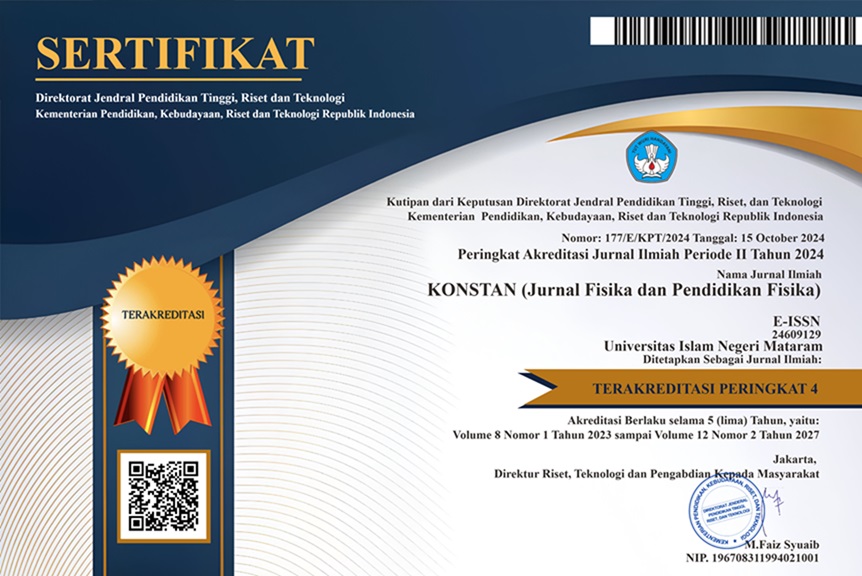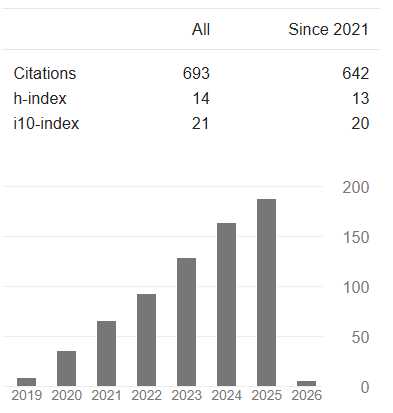An Overview of Ontological, Epistemological, and Axiological Aspects of the Junior High School Concept of Pressure
Abstract
Philosophy will be closely associated with the nature, principles, and laws governing all existing reality. This study examines the ontology, epistemology, and axiology aspects of the junior high school concept of pressure. The method used in this study is conducting studies from various books, journals, articles, magazines, and other scientific references related to the research topic. The data collection process in this study was divided into three stages: (1) editing, (2) organizing, and (3) finding. According to the findings of various studies, the ontological aspect of pressure explains what exactly pressure is. What does it accomplish? What kind? While the epistemological aspect of the concept of pressure is related to an explanation of the discussion related to the epistemological aspect of the idea of pressure will be studied regarding (1) the discovery of the idea of pressure, (2) the idea of pressure; (3) the laws that apply to the matter of stress. Meanwhile, the axiological aspect explains how pressure is useful and the laws that govern it in various aspects of human life. Thus, teachers should pay attention to the ontology, epistemology, and axiology aspects of the concept of pressure when teaching it in junior high school.
Downloads
References
[2] A. Chalik, Filsafat Ilmu: Pendekatan Kajian Keislaman. Surabaya: Arti Bumi Intaran, 2015.
[3] Muslimah, Kajian Filsafat Ilmu dalam Kebudayaan. Semarang: Bangun Reka Prima, 2021.
[4] P. Retnosari, “Filsafat Ilmu Sebagai Dasar dan Arah Pengembangan Ilmu.,” Widyaloka, vol. 7, no. 1, pp. 109–117, 2020.
[5] D. Rokhmah, “Ilmu dalam Tinjauan Filsafat: Ontologi, Epistemologi, dan Aksiologi,” CENDEKIA J. Stud. Keislam., vol. 7, no. 2, pp. 172–186, 2021.
[6] J. . Suryasumantri, Filsafat Ilmu : Sebuah Pengantar Populer. Jakarta: Pustaka SinarHarapan, 1993.
[7] Juairiah, “Analisis ontologi, epistemologi, dan aksiologi ilmu perpustakaan dan informasi,” J. Ilm. Ilmu Perpust. Dan Informasi, vol. 8, no. 1, pp. 33–44, 2020.
[8] A. Rusdiana, Bahan Ajar Filsafat Ilmu (Issue 3). Bandung: UIN Sunan Gunung Jati, 2018.
[9] J. W. Serway, R. a., & Jewett, Physics for Scientists and Engineers with Modern Physic, 7 ed. Thomson Brooks/Cole, 2008.
[10] Saragih, H., Hutagalung, S., Mawati, A. T., Chamidah, D., Khalik, M. F., Sahri, S., Wula, P., Purba, B., Purba, R. F., Kato, I., Filsafat Pendidikan. Medan: Yayasan Kita Menulis, 2021.
[11] C. Sin, “Epistemology, Sociology, and Learning and Teaching in Physics,” Sci. Educ., vol. 98, pp. 342–365, 2014.





